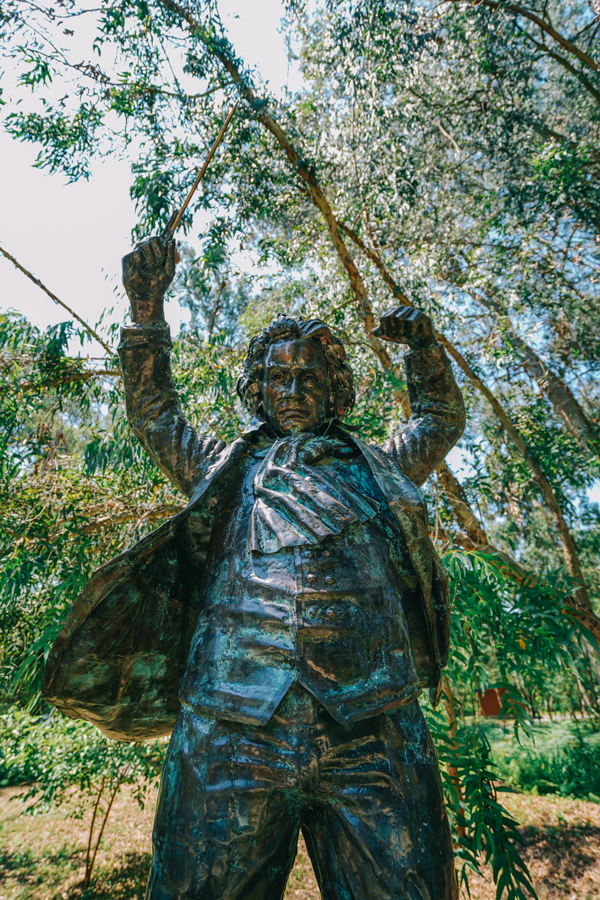რეგისტრაცია
BLACK SEA ARENA
პაროლის აღდგენა
BLACK SEA ARENA
ბილეთების გაყიდვა დროებით შეჩერებულია

ლუდვიგ ვან ბეთჰოვენი
The events of Beethoven's life are the stuff of Romantic legend, evoking images of the solitary creator shaking his fist at fate and finally overcoming it through a supreme effort of creative will. His compositions, which frequently pushed the boundaries of tradition and startled audiences with their originality and power, are considered by many to be the foundation of 19th-century musical principals.
Born in the small German city of Bonn on or around December 16, 1770, he received his early training from his father and other local musicians. As a teenager, he earned some money as an assistant to his teacher, Christian Gottlob Neefe, then was granted half of his father's salary as court musician from the Electorate of Cologne in order to care for his two younger brothers as his father gave in to alcoholism. Beethoven played viola in various orchestras, becoming friends with other players such as Antoine Reicha, Nikolaus Simrock, and Franz Ries, and began taking on composition commissions. As a member of the court chapel orchestra, he was able to travel some and meet members of the nobility, one of whom, Count Ferdinand Waldstein, would become a great friend and patron to him. Beethoven moved to Vienna in 1792 to study with Haydn; despite the prickliness of their relationship, Haydn's concise humor helped form Beethoven's style. His subsequent teachers in composition were Johann Georg Albrechtsberger and Antonio Salieri. In 1794, he began his career in earnest as a pianist and composer, taking advantage whenever he could of the patronage of others. Around 1800, Beethoven began to notice his gradually encroaching deafness. His growing despondency only intensified his antisocial tendencies. However, the Symphony No. 3, "Eroica," of 1803 began a sustained period of groundbreaking creative triumph. In later years, Beethoven was plagued by personal difficulties, including a series of failed romances and a nasty custody battle over a nephew, Karl. Yet after a long period of comparative compositional inactivity lasting from about 1811 to 1817, his creative imagination triumphed once again over his troubles. Beethoven's late works, especially the last five of his 16 string quartets and the last four of his 32 piano sonatas, have an ecstatic quality in which many have found a mystical significance. Beethoven died in Vienna on March 26, 1827.